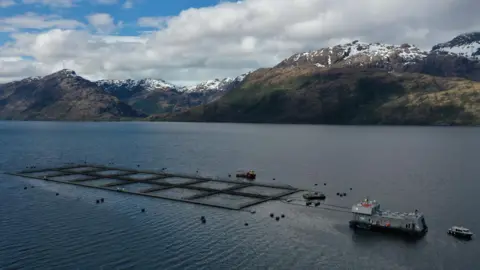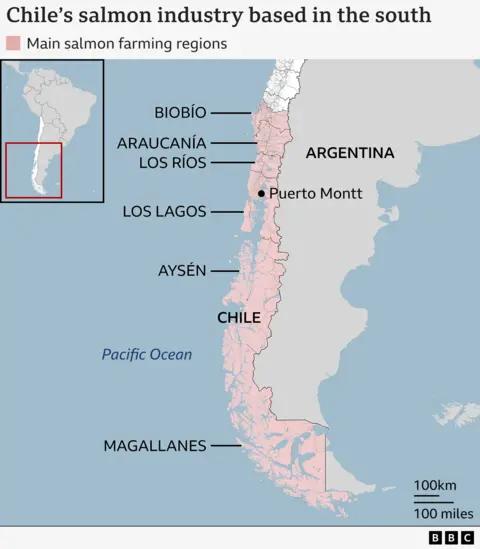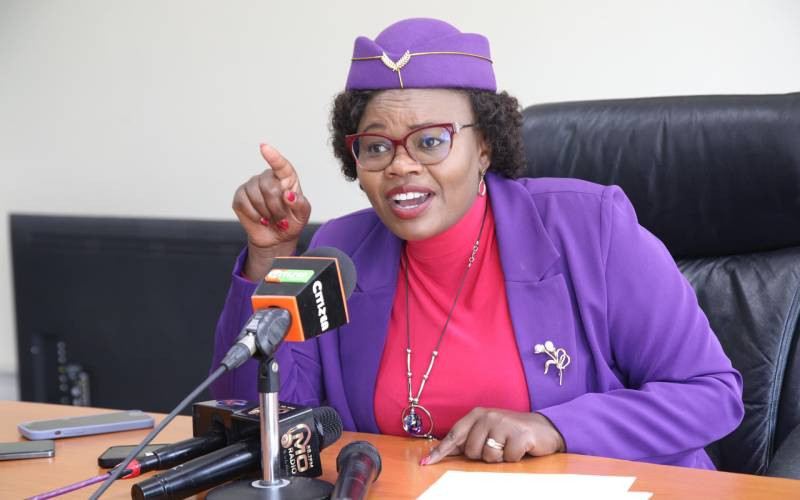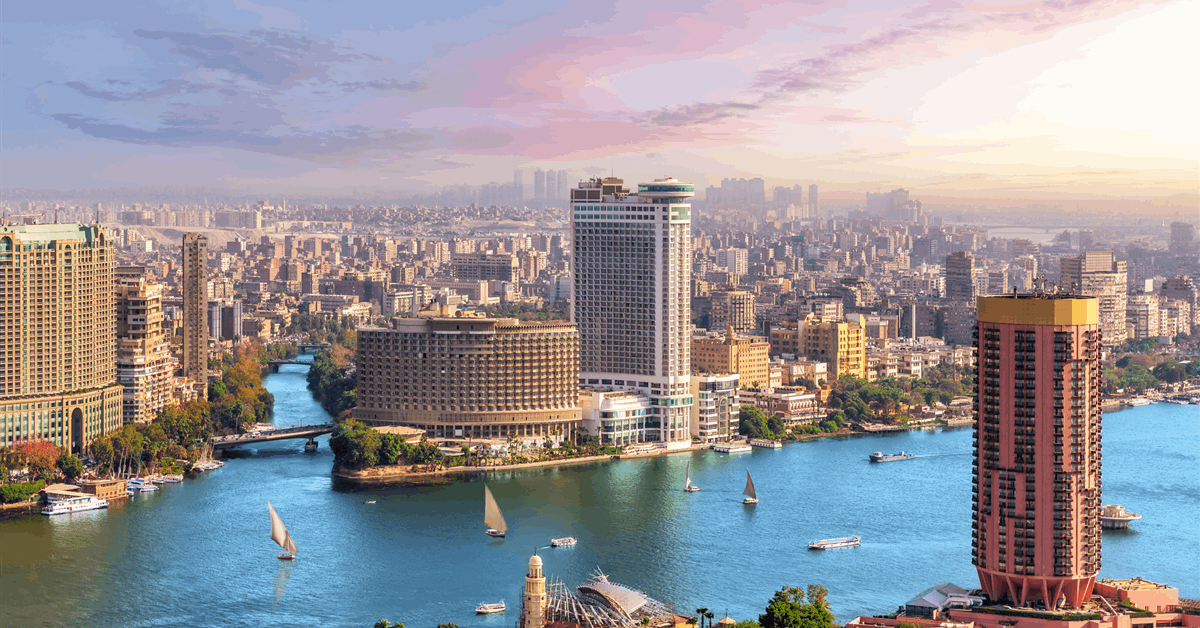Chile's salmon farms hope for calmer waters
Salmón Chile's chairman, Arturo Clements, says the government needs to do more to help the industry expand.
"For us it's been very difficult to grow, because we have too many regulations, and we have too many conflicts regarding the use of the sea," he says. "What we need is to define a long-term strategy regarding salmon farming."
Much of the conflict concerns the locations of many of the fish farms, which critics say are highly polluting.
More specifically, there are 408 salmon farming concessions – licenses granted by the government that allow a company to operate a salmon farm in a specific area – within supposedly environmentally protected areas in Chile.
These include 294 in national reserves, where limited commercial use of natural resources is allowed. And 29 in the more strictly controlled national parks, where business operations are officially not supposed to be permitted.
Flavia Liberona is the executive director of Terram, a foundation that promotes sustainable development. In her hot and sticky office in an old building in the centre of Santiago she describes an environmental campaign that she's part of – Salvemos La Patagonia or Save Patagonia.
It wants to protect the natural habitat of the entire Chilean Patagonia region. This vast geographic area starts north of Puerto Montt and then extends all the way down to the very base of the country. And it is where most of the salmon farms are located, in its many fjords.
"We want the salmon farms to stop operating in the national parks and national reserves," says Ms Liberona.
"The salmon farming causes various environmental problems. One is that the fish are kept in cages and fed with pellets.
"A lot of the pellets and fish faeces end up on the seabed and that leads to less oxygen which kills the sea life in the ocean underneath the cages, and depending on the current, elsewhere in the sea."


When these concerns are put to Mr Clement from Salmón Chile, he explains that there are different categories for the salmon farming concessions.
"In terms of concessions in the national parks we have 21 that we aren't using," he says. "We have told the government that we don't want to be there and asked to be relocated but nothing has happened for many years."
Regarding salmon farming in national reserves, he says that is a different environment which, according to Chilean law and the rules and regulations they follow, they can operate in.
In Chile, the salmon industry is regulated by The Undersecretariat for Fisheries and Aquaculture, a public body that is part of the Ministry of Economy, Development and Tourism.
It looks at environmental protection and sustainability, and is also working on a new general aquaculture law to further regulate the sector.


Julio Salas Gutiérrez, the Chilean Undersecretary of Fisheries and Aquaculture, tells the BBC that the government is working to remove fish farms from the national parks.
"It's not right to claim that the government 'has done nothing for years' regarding the relocation of concessions outside of national parks," he says. "Under the current administration, efforts have been made not only to understand the problem, but also to advance it.
"The relocation process itself is usually quite complex, bureaucratic, and takes a considerable number of years, considering the difficulty of relocating these concessions to new areas suitable for aquaculture."
Matt Craze is the founder of UK and Chile-based Spheric Research, which studies global seafood markets. He says that Chile's salmon industry would invest more money "if they felt that there was a better regulatory framework, and the government gave some certainty about the areas where they can farm".
Yet with a general election due in Chile later this year, the uncertainty may continue at least in the short term.
Read more global business stories












